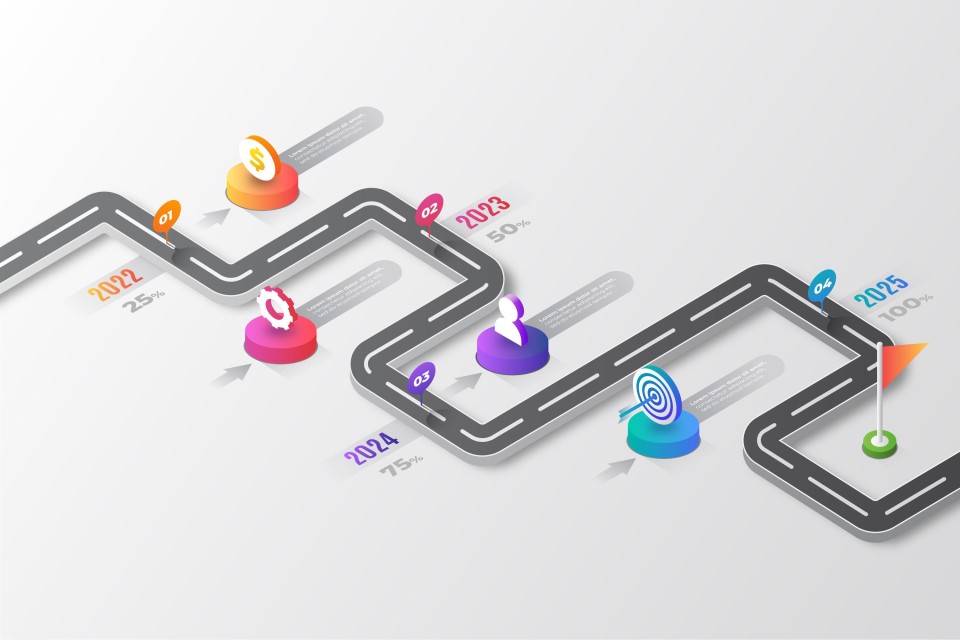Project management philosophies are like snowflakes – no two are alike. Just as each person has a set of values and beliefs that guide their actions, so too do project managers. Your personal philosophy is the foundation upon which your project management style is built.
It encompasses your core values and beliefs about what a successful project looks like and how it should be managed. While your project management philosophy is unique to you, there are some common themes that tend to crop up again and again.
In this blog post, we’ll explore the crucial elements of what constitutes a project management philosophy and discuss them in brief. By the end, you should have a good understanding of what your own personal philosophy might be based on these quality-centered elements.
What is Project Management?
If you’ve ever undertaken a large project – whether it’s renovating a home, planning a wedding, or launching a new product – then you’ve likely had some experience with project management and leading a project team.
In its simplest form, project management is the process of taking a project from start to finish. This involves setting clear goals, outlining a timeline, and assembling the necessary resources. But it also requires effective communication, careful planning, and constant vigilance within the entire project management body to keep the project on track.
Good project management can make the difference between a successful outcome and a total disaster. For complex projects, it’s often worth hiring a professional project manager to take on this vital role. But even for smaller projects, understanding the basics of project management can help you avoid unnecessary stress and frustration.
What Does Project Management Philosophy Entail?
A project management philosophy comprises managing a project by applying a set of principles and beliefs that guide decision-making and actions. The goal of project management philosophy is to ensure that all stakeholders are aligned with the same objectives, values, and goals.
This can be a challenge, particularly when there are conflicting interests involved. However, an effective project management philosophy can help to ensure that everyone is working towards the same goal.
The key principles of project management philosophy include communication, collaboration, transparency, and accountability. By following these principles, a project manager can create a cohesive environment in which all stakeholders can play an active role in achieving success.
The common problem with understanding the philosophy of project management is that it often gets confused with the concept of project management methodologies which is essentially different in meaning and operation.
What are Project Management Methodologies?
A project management methodology is a framework of processes and practices that a company or organization uses to plan, execute, and track projects. Methodologies generally include standardized templates, tools, and techniques for project planning, execution, and control.
A few examples of methodologies would be the Scrum methodology, Agile methodology, Kanban methodology, and others based on software development processes.
In contrast, a project management philosophy is an overarching approach or mindset that guides how a company or organization manages project success. For example, some organizations might adopt a “fail fast, fail often” philosophy in order to encourage innovation and risk-taking.
Other organizations might prioritize predictability and discipline in their project management approach. While there is no right or wrong answer when it comes to philosophy, it is important for companies and organizations to be aware of the different approaches and find the project management method that best fits their culture and values.
Do you need help developing a winning project management philosophy?
Contact Growth Hackers
Understanding the Concept of Projects in the Context of Project Management
Projects are temporary endeavors with a defined beginning and end undertaken to achieve a unique goal. A project is typically distinct from ongoing operations in an organization. The project has a specific objective, which once completed, discontinues the project.
The defining characteristics of a project are temporal nature, uniqueness, and interdependencies; often undertaken to achieve organizational objectives.
Projects can vary in terms of size and complexity, but they all follow the same basic life cycle consisting of initiation, planning, execution/implementation, monitoring/controlling, and closure phases.
Regardless of industry or sector, all successful projects follow these essential steps in order to be completed on time and within budget while still achieving their objectives.
Many industries have standardized on using the PMI’s (project management institute) PMBOK (Project Management Body Of Knowledge) Guide as their reference framework when teaching or practicing project management.
Getting Started with Project Management Philosophy
Now that you know how a project differs from ongoing processes or a procedure, the next step is incorporating philosophy into your project management efforts to understand the basics of what goes into developing project goals.
The elements of any project management philosophy are as follows.
1. Vision
Vision is perhaps the most important aspect of project management philosophy. Without a clear vision, it can be difficult to set objectives and create a strategy for achieving them. A vision should be inspiring and motivating, something that will give direction to the project team members and keep them focused on the ultimate goal.
A clear vision or mission statement is critical for any project management framework. Without a shared sense of purpose, it can be difficult to get project sponsors and teams to buy into the framework and work together effectively.
Furthermore, a well-defined vision can help to keep everyone focused on the same goal, even when unexpected challenges arise. Without a clear direction to follow, it can be easy for a project to become derailed. Ultimately, a vision or mission statement provides the foundation upon which a successful project can be built.
While it is possible to manage a project without a clear vision, doing so is likely to lead to poorer results. A lack of clarity can lead to confusion and conflict among project teams, and make it difficult to assess whether or not the project is on track.
Furthermore, without a shared sense of purpose, team members are less likely to be motivated and invested in the project. In short, having a clear vision or mission statement is essential for any project that hopes to be successful.
2. Roadmap
Roadmaps are another essential element of project management philosophy. They provide a framework for the project, outlining the steps that need to be taken to achieve the desired outcome.
Roadmaps help to ensure that all members of the team are aware of the tasks that need to be completed and by when. They also allow for flexibility, allowing for changes to be made if necessary.
It also helps to identify potential risks and issues and provides a timeline for completion. Perhaps most importantly, a roadmap gives every team member a shared sense of purpose and direction.
A route map is a tool that can be used to visualize the progression of a project from start to finish, say from the project management office to the desired destination. There are a variety of different ways that a route map can be designed, but most maps will include a series of milestones that need to be achieved in order to complete the project.
The milestones on a route map can be designed to track individual tasks, or they can be used to track the overall progress of the project. Route maps can also be customized to show the dependencies between different tasks, or to highlight the risks associated with each milestone.
One of the most common ways is a Gantt chart. This type of chart is helpful for outlining the tasks that need to be completed, as well as the timeline for completing them. Another form that a route map can take is called a PERT chart.
This chart is helpful for identifying the dependencies between tasks, as well as estimating how long each task will take to complete. Also, a network diagram can be helpful for visualizing the relationships between tasks and identifying potential bottlenecks in the project.
No matter how it is designed, a route map is an invaluable tool for keeping track of a project and making sure that it stays on track.
3. Risk Management
Risk management is also a vital part of project management philosophy. All projects come with some degree of risk, and it is important to identify and assess these risks before they become reality. Risk management helps to minimize the impact of these risks and can often prevent them from happening altogether.
In practice, risk management involves a lot of pre-planning and proactive thinking. For example, before beginning a project, project managers will often brainstorm a list of potential risks that could impact the project. They will then assess each risk in terms of its likelihood and potential impact.
Once the risks have been identified and assessed, the project manager can develop a plan for responding to them. This might involve putting contingencies in place or making arrangements for alternate courses of action. By taking a proactive approach to risk management, project managers can help to ensure that their projects are successful.
Projects that are repeatable, like construction projects with a process that is carried out in a similar manner no matter where or which contractor is undertaking it, tend to have minimal risks. Over time, their processes and experiences are converted into checklists and methodologies making them less risky in comparison to many other types of projects. In contrast, the waterfall approach, with its sequential methodology, is advantageous in these scenarios, as it manages repeatable tasks with reduced uncertainties.
Say, for example, projects that involve developing software. There’s always a high rate of failure and time constraints making it a risky business. Working on software is a different task but working on creating software is something else indeed.
Develop a project management philosophy to work efficiently and effectively!
Managing the critical path
The critical path of a project is the sequence of key tasks that must be completed in order for the project to be successful. This sequence cannot be altered without impacting the project’s timeline, and any task that falls on the critical path is known as a critical task.
In order to manage the critical path effectively, it is important to have a clear understanding of the project’s timeline and the key tasks that make up the sequence. Additionally, it is also important to use a timeline template that can best reflect your project to monitor the progress of each task and identify any potential delays that could impact the critical path.
By understanding and managing the critical path, you can help to ensure that your project stays on track and is completed on time.
Change Management
Changes are inevitable. No matter how well crafted the initial route map is, there will always be additional requirements or changes that need to be made along the way. However, if these changes are not properly managed, they can quickly spiral out of control and derail the entire project.
This is where the change management concept comes in. Change management is all about preventing, assessing, and responding to continuous improvement in a controlled and organized manner. By following a well-defined change management process, project managers can ensure that changes are made in a way that doesn’t impact the overall success of the project.
There are a few key things that a project manager can do to handle change effectively.
- First, they need to develop a clear and concise process for handling changes. This process should be communicated to all stakeholders so that everyone is on the same page.
- Second, they need to make sure that changes are properly documented. This documentation will help to keep the project organized and on track.
- Finally, they need to have a flexible approach and be willing to adapt their plans as needed.
Change is inevitable in any project, but with proper management, it doesn’t have to be a disaster.
4. Efficiency
Project management is all about getting things done efficiently. That means creating a plan and then executing it in the most efficient way possible with the entire team. Of course, there are always going to be unforeseen obstacles and challenges. But the goal is to minimize those as much as possible and still get the job done quickly and effectively. Getting project management guidance can help you avoid those pitfalls.
Efficiency is often cited as a key element of the project management philosophy. At its core, project management is about execution – ensuring that a project is completed on time, within budget, and to the required level of quality.
To achieve this, project managers must be able to efficiently utilize the resources at their disposal. This includes not only traditional physical resources like materials and labor but also intangible resources such as knowledge and expertise.
By effectively managing these resources, project managers can help to ensure that projects are completed efficiently and effectively. In turn, this can lead to improved project outcomes, including increased quality and reduced costs. As such, efficiency is an important consideration for any project manager.
5. Learning
Finally, learning is an important part of project management philosophy. No project is ever perfect, and there will always be lessons to be learned from mistakes that are made along the way. It is important to encourage learning within the team so that lessons can be shared and improvements can be made for future projects.
Projects are full of challenges, and every team will encounter setbacks at some point. The best way to overcome these challenges is to learn from them. After every project, take some time to reflect on what went well and what could be improved. What worked well in one situation might not work in another, so it’s important to be flexible and adapt your approach as you learn.
The agile method to project management encourages this kind of learning by incorporating a retrospective at the end of each sprint. This gives the team a chance to reflect on their progress and identify any areas where they need to improve.
Learning, according to the agile frameworks, should also be an ongoing process, not something that only happens after a project is completed. Make sure to keep an open mind and always be willing to learn new things. By doing so, you’ll ensure that your projects are always moving forward.
The Core of the Philosophy of Project Management
Quality is a core value or philosophy within project management. This is because when done correctly, quality assurance (QA) or quality control (QC) activities help to ensure that products or services meet or exceed customer expectations. In other words, quality is essential for delivering a successful project.
There are many different ways to approach quality in project management. One popular framework is known as the Deming Cycle, which consists of four steps: Plan, Do, Check, and Act. This cycle can be applied to any process in order to continuously improve the quality of the output.
Another common approach is Six Sigma, which focuses on reducing defects through the use of statistical methods. No matter which framework is used, the goal is always the same: to deliver a high-quality product or service that meets or exceeds customer expectations.
Final Thoughts on Project Management Philosophy
The philosophy of project management is a complex and ever-evolving field. There are a variety of schools of thought, each with its own strengths and weaknesses. As a result, there is no single “right” answer when it comes to managing projects.
Instead, the best approach is to carefully consider the needs of each individual project and tailor the management strategy accordingly.
Of course, this is easier said than done. Project management is an inherently messy business, and even the most experienced professionals can find themselves struggling to keep everything under control.
Nevertheless, by keeping the principles of project management in mind, we can increase our chances of success and make every project a little bit easier.
Are you looking for ways to make your project management process more efficient? If so, Growth Hackers can help. We’re a digital marketing agency with a global reach, and we specialize in helping businesses make the most of their online resources.
We can help you customize your project management process to suit your specific business needs, and we’ll work with you to ensure that your process is as efficient as possible. In addition, we offer a variety of other services that can help you streamline your operations and get the most out of your online presence.
Contact Growth Hackers today to learn more about how we can help you make your project management process more efficient.
Whether it’s a difficult client, a tight budget, or an ever-changing landscape, marketers are constantly being forced to adapt and overcome. However, challenges can also be viewed as opportunities to learn and grow.
By approaching each challenge with a positive attitude and an open mind, marketers can develop the skills they need to succeed in today’s competitive landscape. Additionally, it’s important to seek out feedback from colleagues and mentors.








